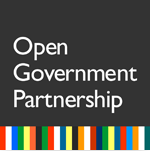|
18 April 2012
OGP meeting in Brazil ends on a positive note
 The Open Government Partnership annual meeting held in Brazil from 17-18 April 2012 ended on a positive note. The meeting attended by 1 190 delegates from civil society organisations, businesses, governments and others, took place to discuss the latest reforms, tolls and innovations in the open governance field. The Open Government Partnership annual meeting held in Brazil from 17-18 April 2012 ended on a positive note. The meeting attended by 1 190 delegates from civil society organisations, businesses, governments and others, took place to discuss the latest reforms, tolls and innovations in the open governance field.
Established in September 2011, the OGP is a conglomeration of states that champion commitments to advance open, transparent and accountable governments. A total of 55 participating countries were represented, reflecting, based on 2010 statistics from the World Bank, representation of a total of 1.93 billion people globally.
Given the large number of countries represented, the meeting utilised technology to accommodate those unable to be physically present. Speeches given by world leaders, as well as breakout panel discussions were available through live broadcasts on the OGP website. In addition viewers were able to pose questions through Twitter and Facebook interaction.
Major issues highlighted during deliberations included;
- The importance of thoroughly thrashing out reasons why the initiative was started;
- The need for members to comply and uphold resolutions governing OGP; and
- The need by government to acknowledge the role of civil society and to increase civil participation in the process.
Key commitments made by countries, as summarised by the OGP secretariat, are:
- Innovative public accountability mechanisms – including a new ‘openness barometer’ in Slovak Republic, a ‘governance observatory’ in Peru and public scorecard in Dominican Republic.
- Open data portals – covering everything from crime statistics and political party funding to local budgets and procurement (proposed by Chile, Estonia, Israel, Italy, Jordan, Peru, Romania, Spain and Tanzania).
- New legal and institutional mechanisms – including the creation of new state agencies (specifically in Peru and Uruguay), changes to access to information laws and systems (Canada and Croatia) and new anti-corruption laws/strategies (Estonia, Jordan and Peru).
- Improved service delivery – including an interactive local water-point mapping system in Tanzania, digitized medical records in Spain and new/improved portals on service delivery in Italy, Israel, Tanzania and Uruguay.
- Natural resource transparency – Ukraine and Colombia have both signed up to the Extractive Industries Transparency Initiative, while Bulgaria, Colombia and Canada are taking steps to increase transparency around natural resources concessions and associated revenues (at both a national and local level).
- International aid – Spain and Canada have committed to making their development agencies more transparent and aligned with international donor reporting agreements like the International Aid Transparency Initiative.
- Public integrity – introduction of new whistle-blower protection laws in Slovak Republic and Montenegro.
- Citizens’ budgets – Bulgaria, Croatia and Tanzania are all creating citizens’ budgets at the national and/or local level to ensure public access to information to where public resources are going in plain, accessible language.
- E-petitions – Ukraine, Slovak Republic, Moldova and Montenegro are all introducing online e-petition portals to collect and respond to citizens’ proposals more quickly and effectively.
- Challenges and prizes – Uruguay, Israel, Italy, Jordan and Colombia are introducing government-sponsored prizes and challenges to encourage the private sector and public agencies to better use government data.
|





 The
The 
